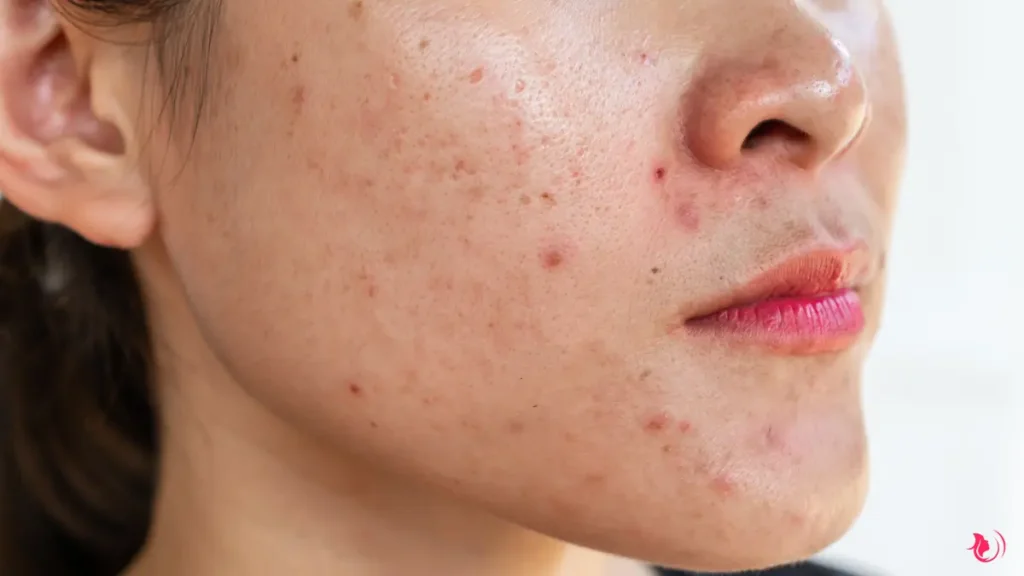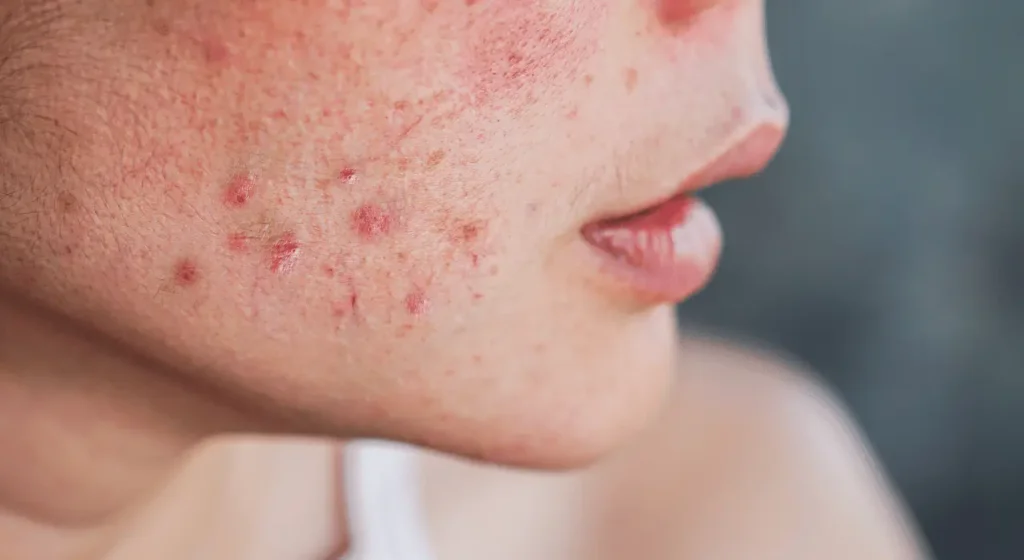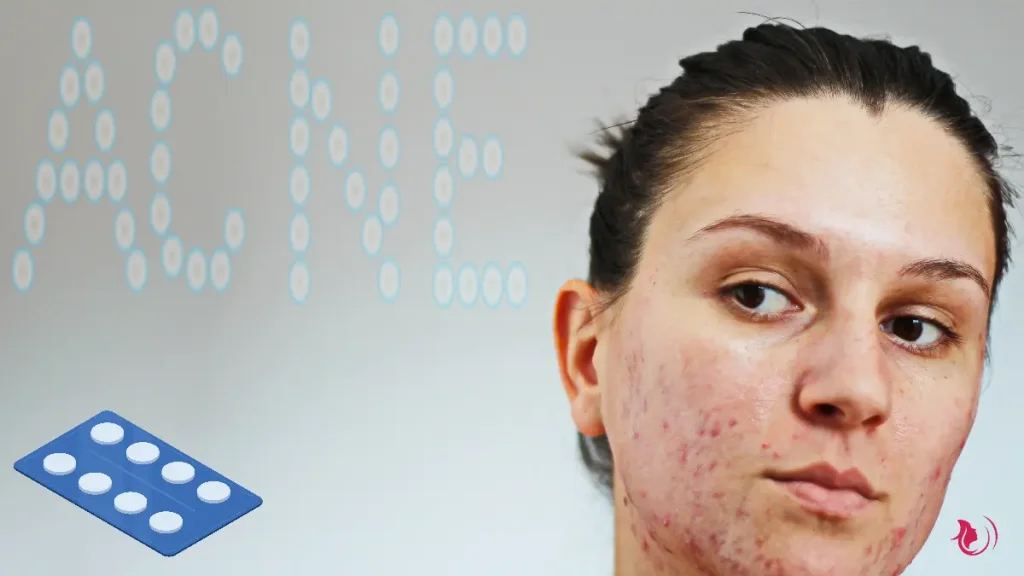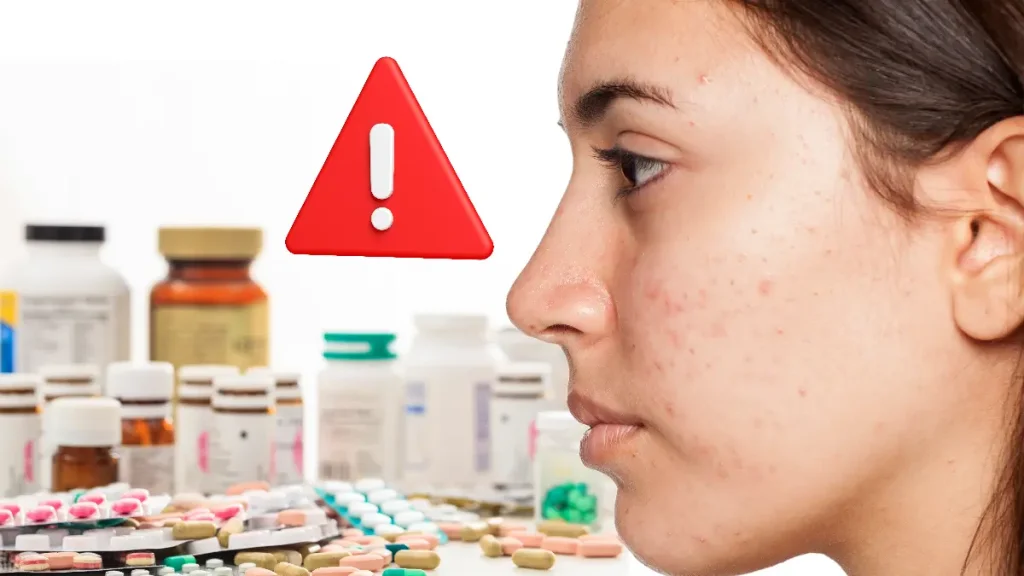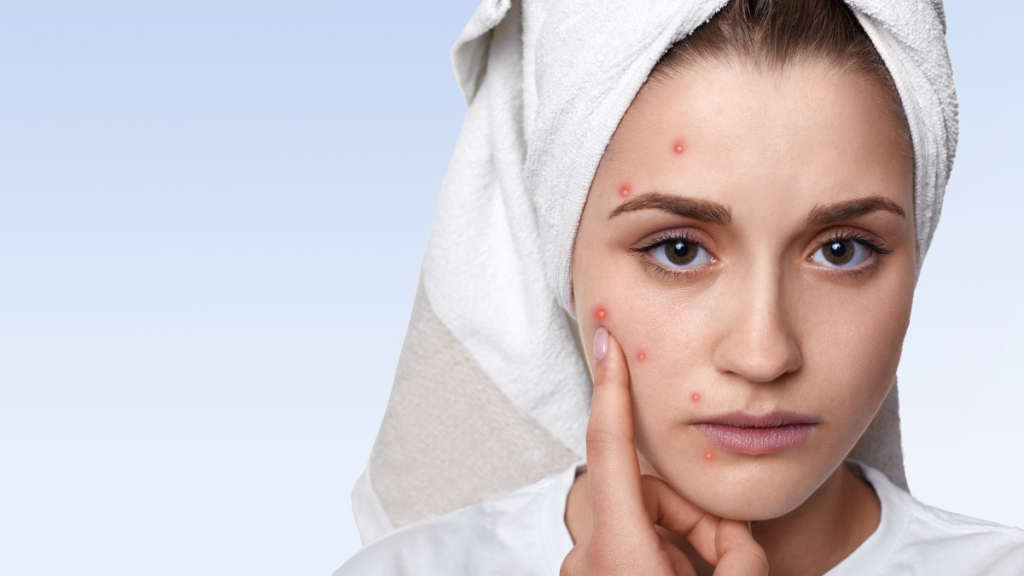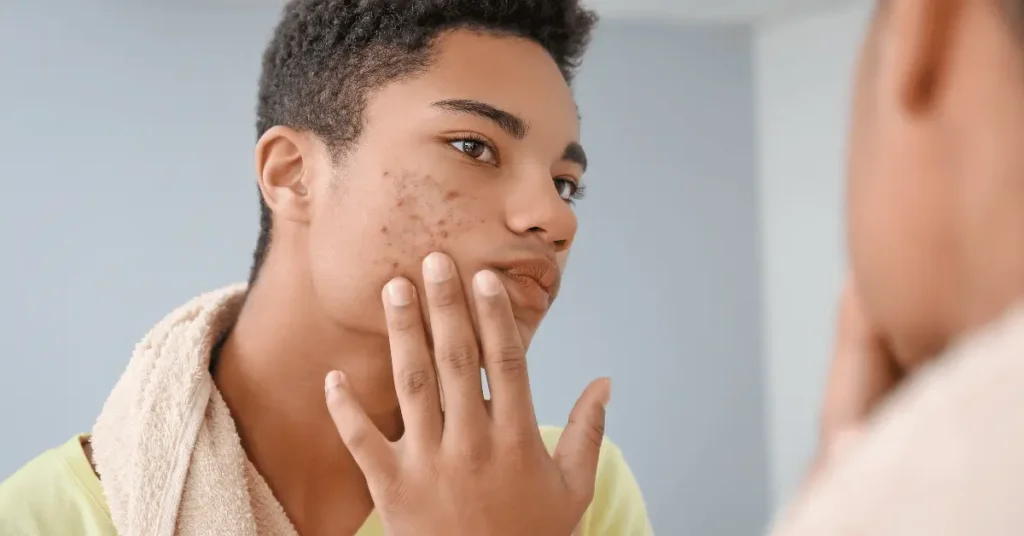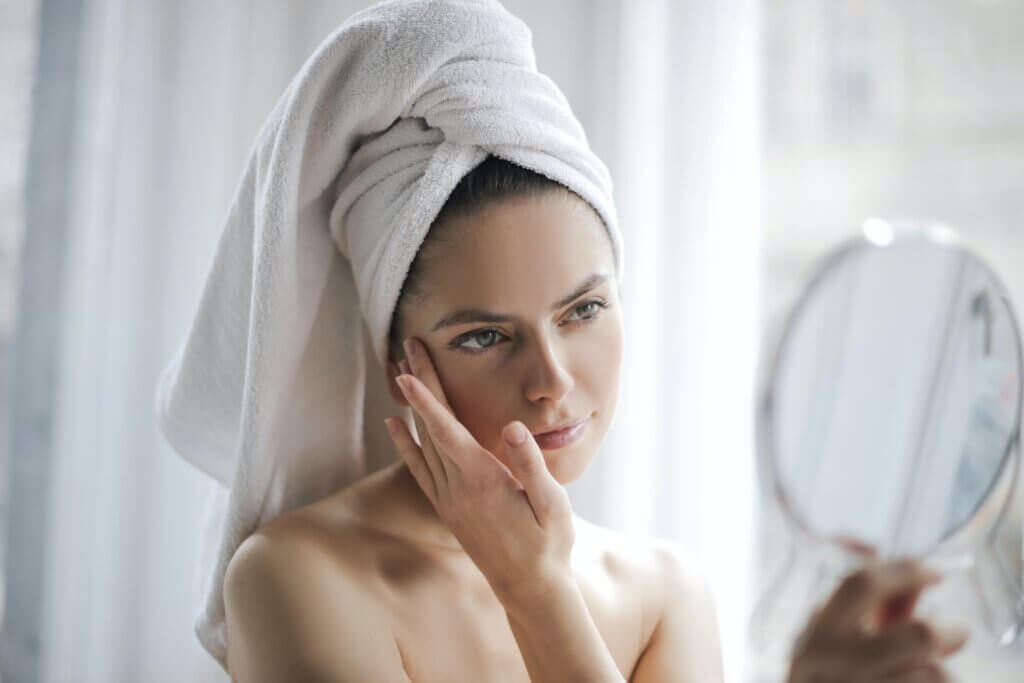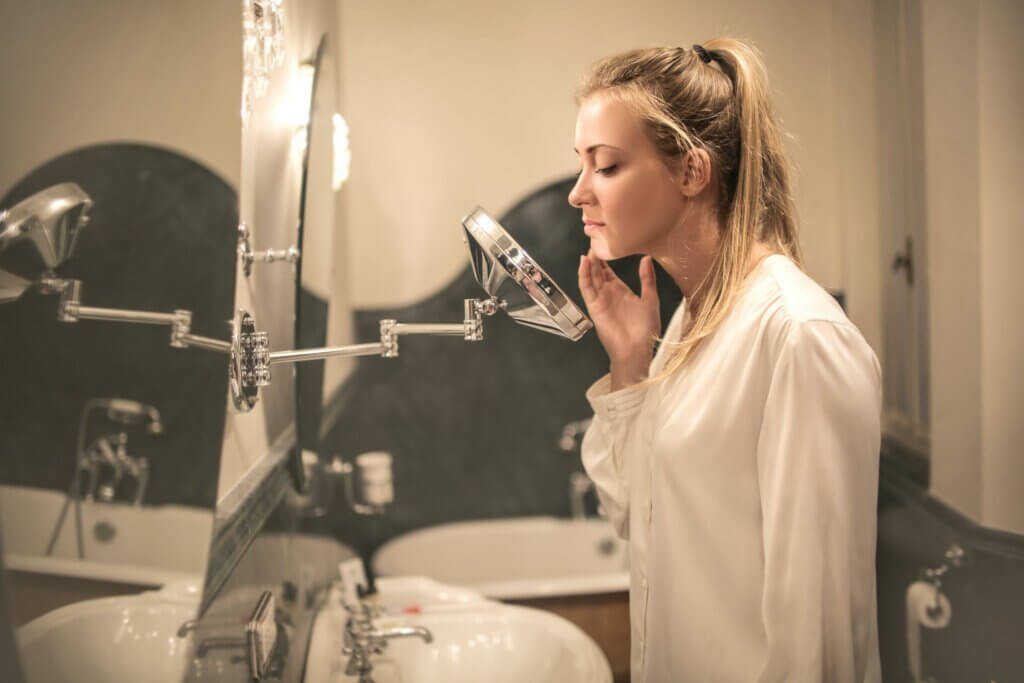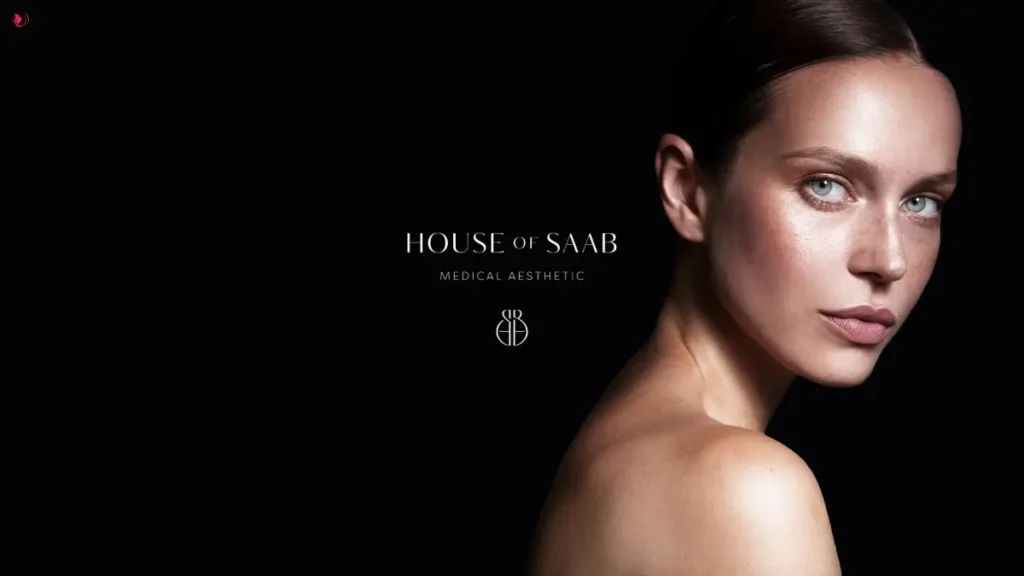There are several ways to treat acne. Each type of treatment varies based on your age, the type of acne you have and the severity. A healthcare provider might recommend taking oral medications, using topical medications or using medicated therapies to treat your skin. The goal of acne treatment is to stop new pimples from forming and to heal the existing blemishes on your skin.
Acne
Acne is a very common skin condition that causes pimples. You’ll usually get pimples on your face. Clogged pores cause acne. Teenagers and young adults most often get acne, but it can also occur during adulthood for many people. Treatment is available to clear acne from your skin and prevent scarring.

Overview
Acne is a common skin condition where the pores of your skin clog. Pore blockages produce blackheads, whiteheads and other types of pimples. Pimples are pus-filled, sometimes painful, bumps on your skin. The medical term for acne is acne vulgaris.
Statistics

9.4%
of global population affected by acne
96%
of sufferers linking acne to depression
46%
of sufferers with self-esteem issues
£2.34 b
of sufferers linking acne to depression
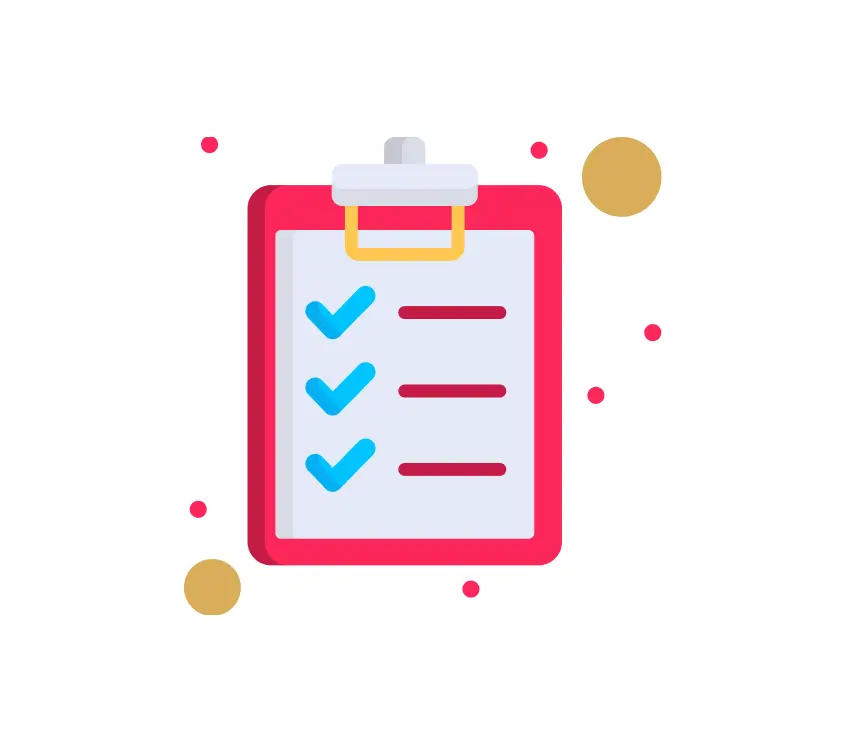
Symptoms & Causes
Symptoms of acne on your skin include:
- Pimples (pustules): Pus-filled bumps (papules).
- Papules: Small, discolored bumps, often red to purple or darker than your natural skin tone.
- Blackheads: Plugged pores with a black top.
- Whiteheads: Plugged pores with a white top.
- Nodules: Large lumps under your skin that are painful.
- Cysts: Painful fluid-filled (pus) lumps under your skin.
Clogged hair follicles or pores cause acne. Your hair follicles are small tubes that hold a strand of your hair.
There are several glands that empty into your hair follicles. When too much material is inside your hair
follicle, a clog occurs.
Types
There are several types of acne, including:
- Fungal acne (pityrosporum folliculitis): Fungal acne occurs when yeast builds up in your hair follicles. These can be itchy and inflamed.
- Cystic acne: Cystic acne causes deep, pus-filled pimples and nodules. These can cause scars.
- Hormonal acne: Hormonal acne affects adults who have an overproduction of sebum that clogs their pores.
- Nodular acne: Nodular acne is a severe form of acne that causes pimples on the surface of your skin, and tender, nodular lumps under your skin.
All of these forms of acne can affect your self-esteem, and both cystic and nodular acne can lead to permanent skin damage in the form of scarring.
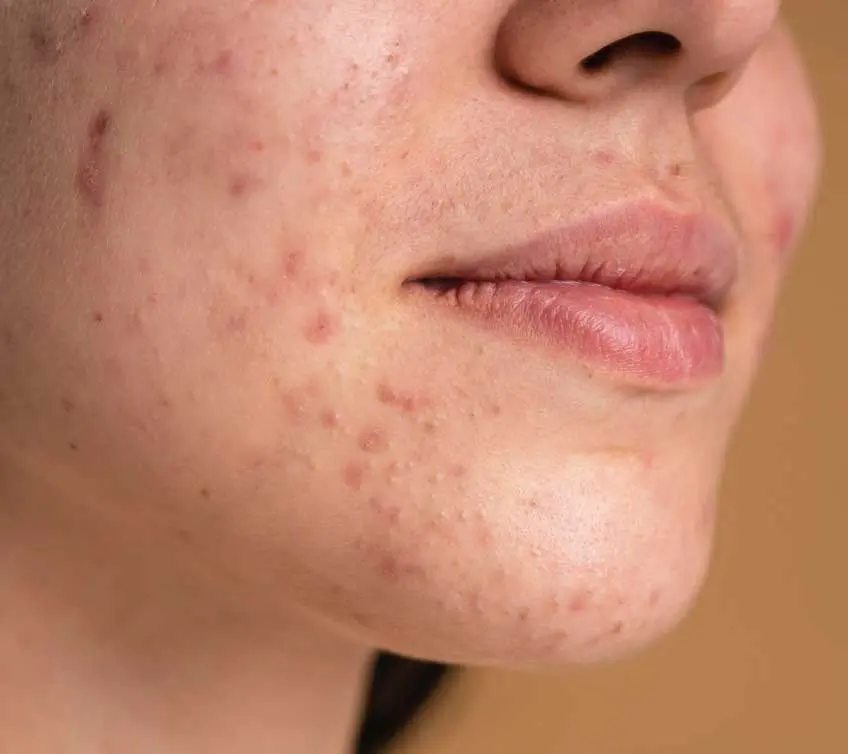
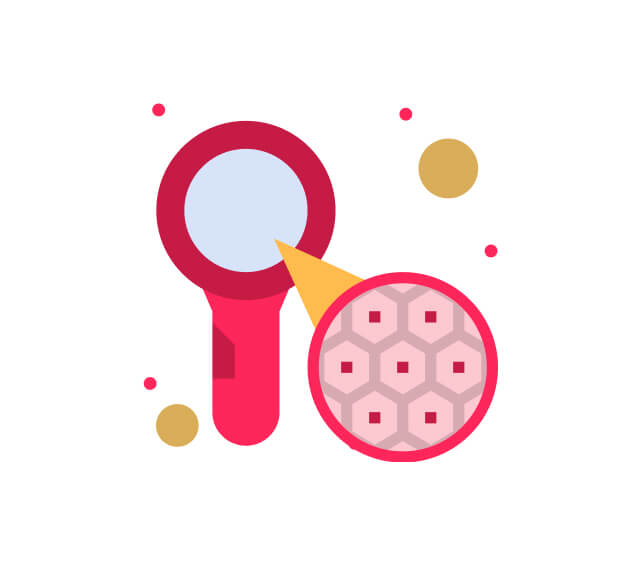
Diagnosis & Tests
A healthcare provider can diagnose acne during a skin exam. During this exam, the provider will closely look at your skin to learn more about your symptoms. In addition, they may also ask about risk factors for acne, like:
- Are you feeling stressed?
- Do you have a family history of acne?
- If a woman or person AFAB, do you notice breakouts during your menstrual cycle?
- What medications do you currently take?
Your healthcare provider won’t need to run any diagnostic tests for acne, but they may offer tests to diagnose any underlying conditions if you have sudden, severe acne outbreaks, especially if you’re an adult.
Latest Acne News
However, they do present some problems when it comes to your skin, creating the perfect environment for acne breakouts and
Management
Treatments
Clinics For Acne Treatment

Prevention
You can’t completely prevent acne, especially during hormone changes, but you can reduce your risk of developing acne by:
- Washing your face daily with warm water and a facial cleanser.
- Using an oil-free moisturizer.
- Wearing “noncomedogenic” makeup products and removing makeup at the end of each day.
- Keeping your hands away from your face.
Outlook / Prognosis
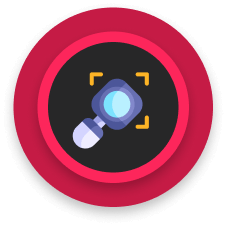
What can I expect if I have acne?
Acne often goes away in early adulthood, though some people will continue to experience acne throughout adulthood. Your healthcare provider or a board-certified dermatologist can help you manage this condition. Various medications and therapies are effective forms of treatment. They target the underlying factors that contribute to acne. It may take several different types of treatment before you and your healthcare provider find one that works best for your skin. The skin care products that work for you might not work for someone else with similar symptoms.
Can acne cause scars?
Yes, sometimes acne can cause scarring. This happens when the acne penetrates the top layer of your skin and damages deeper skin layers. Inflammation makes your acne pores swell and the pore walls start to breakdown, which causes skin damage. Scarring can be a source of anxiety, which is normal. Before treatment, your healthcare provider will determine what type of acne caused your scars. There are several treatment options available for acne scars.
How does acne affect my mental health?
Acne can cause disruptions in your mental health because it affects your appearance and self-esteem. Often, acne development is out of your control if hormones cause it. This can create stress, which can influence future breakouts. Acne can be challenging for teenagers and young adults. If your acne causes you to feel anxious or it prevents you from participating in social activities with your friends and family, talk to a healthcare provider or a mental health professional.
Living With

When should I see my healthcare provider?
Visit a healthcare provider as soon as you notice pimples so you can start treatment immediately before scarring
occurs. If you’re using an acne treatment that isn’t working to clear your acne or it causes skin irritation
like itchiness or skin discoloration, visit a provider.
What questions should I ask my doctor?
- What type of acne do I have?
- Do I need to see a dermatologist?
- How severe is my acne?
- What over-the-counter medications do you recommend?
- What prescription medications do you recommend?

